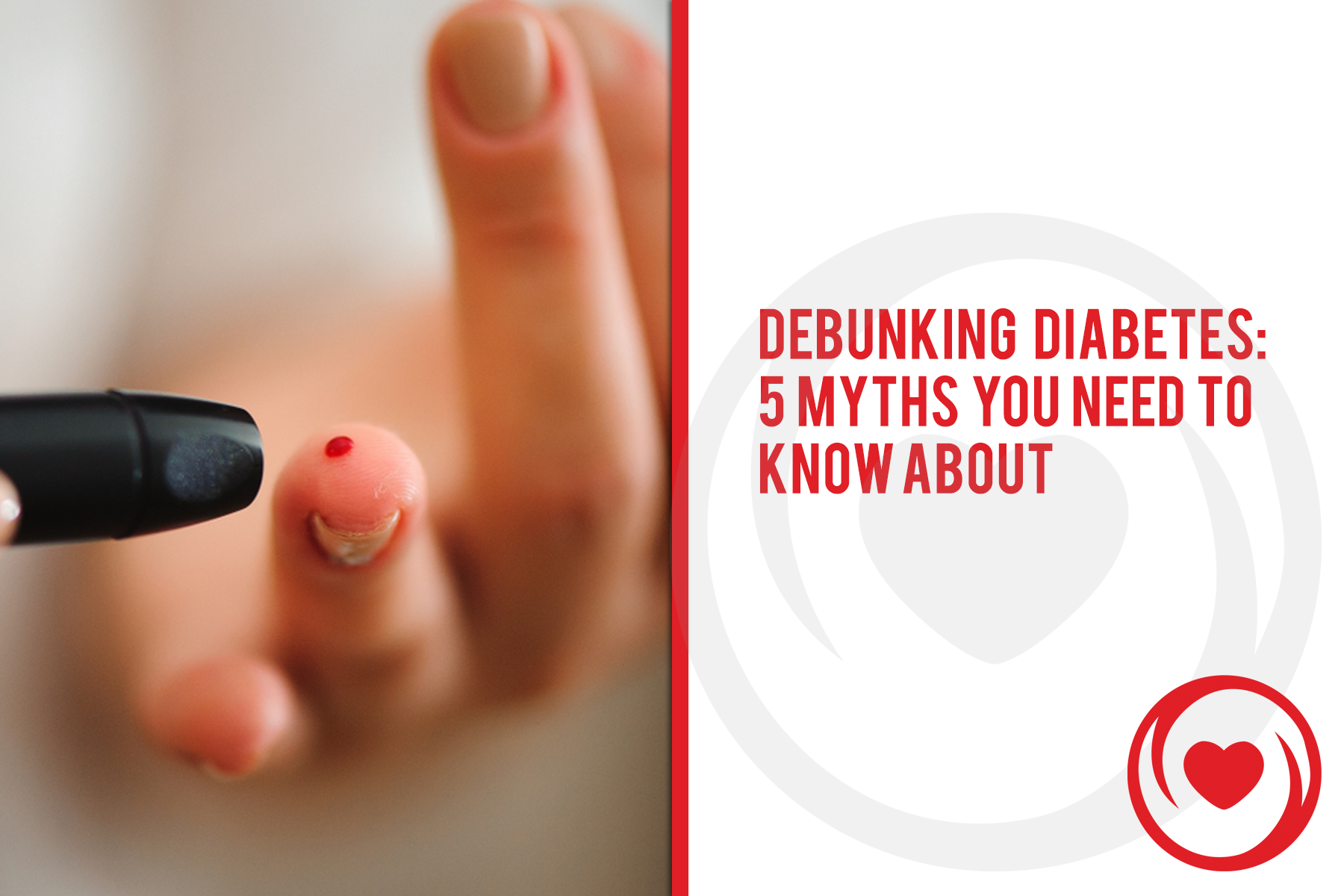November is National Diabetes Awareness month across the US. Organizations like the American Diabetes Association aim to increase awareness and advocacy on behalf of patients battling the chronic condition. According to a CDC report issued in 2017, a staggering 100 million people are currently living with either diabetes or prediabetes. Even though such a large portion of the population either has or is faced with the diagnosis, there is still an overwhelming amount of misinformation circulating. Let’s tackle some of the most common diabetes misconceptions by exploring the facts and evidence behind them –
Myth 1: Diabetes only affects certain ethnic groups.
False: While it’s true that some groups have a higher predisposition than others, diabetes can be found in almost every ethnic group living in America today. According to the American Diabetes Association, African American, Mexican American, American Indian, Native Hawaiian, Pacific Islander, and Asian American communities represent the groups with the highest number of reported cases. However, researchers are cautious to draw too quick of a conclusion that genetics is the sole factor in these communities’ risk – each of these groups is also typically overweight as a whole. And, while they are statistically the highest at-risk groups, the numbers still remain only slightly higher than those of Caucasians.
Diabetes affects a broad spectrum of ethnicities, don’t let cultural stereotypes influence whether or not you’re at-risk.
Myth 2: I don’t eat processed sugar, so my risk of developing diabetes is limited.
False: There are two types of diabetes – Type 1 and Type 2. In the case of Type 1, cells within your pancreas are destroyed by your immune system rendering it ineffective in producing insulin. Consuming sugar (or anything else related to your lifestyle) has absolutely zero effect on developing diabetes.
In the case of Type 2 diabetes, there may be some correlation, but it’s not a conclusive factor. With Type 2, the body either resists the production of insulin or doesn’t produce enough of the hormone that regulates the movement of sugar within the body’s cells. Although being overweight is a high risk-factor, your calories don’t have to come specifically from sugary foods – a diet that consists predominantly of fats and carbohydrates can undoubtedly lead to an increase in BMI just as a diet laden with sugar.
Myth 3: My healthcare provider said that my diabetes is mild and I shouldn’t worry.
False: There is no scientific basis for determining whether or not a case of diabetes is any less severe than another. All cases require interventions to help the body process sugar adequately, be it with lifestyle modifications or with medications. No matter how your disease is managed, it’s vital that you take regular readings of your blood glucose to ensure that your levels are optimal.
Myth 4: I don’t need to test my blood glucose levels because I can tell when it’s high.
False: While blood glucose readings that are either too high or too low present with very recognizable symptoms, relying on their onset to determine if you’re out-of-range isn’t advisable. Dangerously elevated levels often present with symptoms similar to levels that are too low, but each requires entirely different interventions. A patient could have fatal consequences for treating the wrong symptoms. This is why monitoring your glucose frequently is the best practice when living with diabetes.
Myth 5: I don’t have a family history of diabetes, so I am not at risk.
False: While Type 1 is more closely related to hereditary factors than Type 2, neither diagnosis is solely dependent on having a close family member with the disease. Don’t fall prey to believing that just because a close relative doesn’t have a diagnosis, you are not at risk.
Diabetes myths remain common, and misinformation continues to circulate. Despite awareness campaigns’ best efforts, there is still work to be done in educating the public. With advancing technologies and a solid base of knowledge about how the diabetes can effectively be treated, the prognosis is good. A diabetes screening and candid talk with your healthcare provider is a proactive step in learning the right tools for managing your risk.
NurseCore is a national leader in medical staffing and home care services. We are committed to exceeding the expectations of both our clients and employees, we specialize in connecting healthcare professionals, nurses, and caregivers with the medical facilities and home care positions in need of their expertise. NurseCore strives to relevant healthcare news, resources, and industry topics. Explore our blog and “like” us on Facebook!


0 Comments